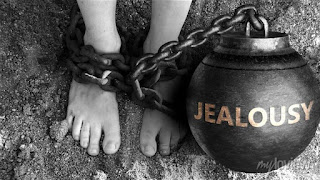Jealousy can impact your emotional health and strain your valuable relationships, even ruin them. Jealousy can also impact your physical health causing stomachache, headache, chest pain, high blood pressure, palpitation, weight gain or loss, insomnia or disturbances in sleep, poor appetite, and weakened immunity.[1]
Dr Gonzalez-Berrios, an expert in mood and anxiety disorders, recommends the following mechanisms[2] to overcome jealousy.
1. Confront your fears
Jealousy can stem from insecurity or poor self-image. Therefore, it is necessary to confront your fears such as fear of losing your partner or fear of failure. Once you recognize these fears you can acknowledge and address them as they are often the underlying cause of jealousy.
2. Address your expectations
In any relationship it is essential to develop a realistic expectation of how much time someone can spend with you. If they are unable to meet your expectations, try not to blame them. See if you can work together to set more reasonable expectations.
3. Practice gratitude
Remind yourself about all the beautiful things life has given you. Identify the blessings attached to your relationship, not the limitations alone. Be grateful to the persons who accompany you in your ups and downs and to God for having them in your life.
4. Be open and honest
Healthy relationships grow on clear and honest communication. If jealousy arises, having an open and honest conversation about how you are feeling is important. The misunderstandings arising due to jealousy can be resolved with compassion and mutual trust.
5. Practice mindfulness
Negative emotions can affect your physical and mental wellbeing. Try practising mindfulness meditations when you are feeling jealousy or another negative emotion such as anger or fear.
To overcome jealousy and flourish in your relationships, honest communication, building trust, and establishing realistic expectations are the key.
If the above tools do not work, try talking to a wise friend or approach a counselor.
John Baptist OFM Cap. | Clinical Counselor & Psychospiritual Resource Person | Pennsylvania, USA








